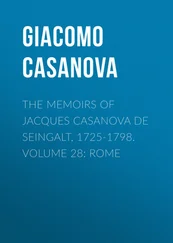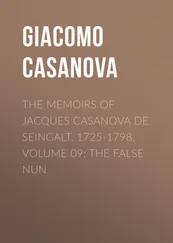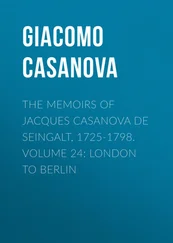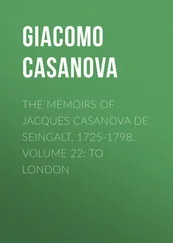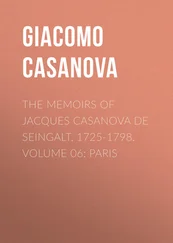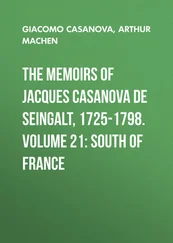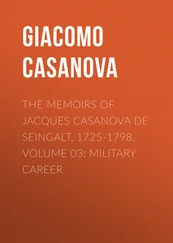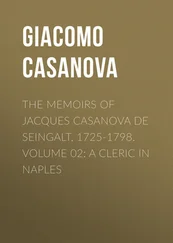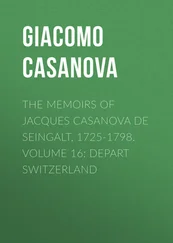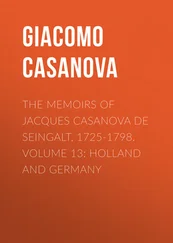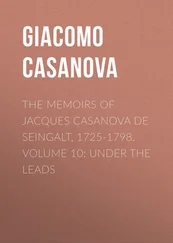Giacomo Casanova
(Illustrated Edition)
The Incredible Life of Giacomo Casanova – Lover, Spy, Actor, Clergymen, Officer & Brilliant Con Artist Translator: Arthur Machen
Published by
 Books
Books
Advanced Digital Solutions & High-Quality eBook Formatting
musaicumbooks@okpublishing.info2017 OK Publishing ISBN 978-80-7583-378-5
Casanova at Dux Casanova at Dux Table of Contents
Translator's Preface
Author's Preface
Volume 1. Venetian Years
Episode 1. Childhood
Chapter I
Chapter II
Chapter III
Chapter IV
Chapter V
Chapter VI
Chapter VII
Episode 2. Cleric in Naples
Chapter VIII
Chapter IX
Chapter X
Chapter XI
Chapter XII
Episode 3. Military Career
Chapter XIII
Chapter XIV
Chapter XV
Episode 4. Return to Venice
Chapter XVI
Chapter XVII
Chapter XVIII
Chapter XIX
Episode 5. Milan and Mantua
Chapter XX
Chapter XXI
Chapter XXII
Chapter XXIII
Volume 2. To Paris and Prison
Episode 6. Paris
Chapter I
Chapter II
Chapter III
Chapter IV
Chapter V
Chapter VI
Chapter VII
Chapter VIII
Chapter IX
Episode 7. Venice
Chapter X
Chapter XI
Chapter XII
Chapter XIII
Chapter XIV
Chapter XV
Episode 8. Convent Affairs
Chapter XVI
Chapter XVII
Chapter XVIII
Chapter XIX
Chapter XX
Episode 9. The False Nun
Chapter XXI
Chapter XXII
Chapter XXIII
Chapter XXIV
Chapter XXV
Episode 10. Under the Leads
Chapter XXVI
Chapter XXVII
Chapter XXVIII
Chapter XXIX
Chapter XXX
Chapter XXXI
Chapter XXXII
Volume 3. The Eternal Quest
Episode 11. Paris and Holland
Chapter I
Chapter II
Chapter III
Chapter IV
Episode 12. Return to Paris
Chapter V
Chapter VI
Chapter VII
Chapter VIII
Chapter IX
Episode 13. Holland and Germany
Chapter X
Chapter XI
Chapter XII
Episode 14. Switzerland
Chapter XIII
Chapter XIV
Chapter XV
Chapter XVI
Chapter XVII
Chapter XVIII
Episode 15. With Voltaire
Chapter XIX
Chapter XX
Chapter XXI
Volume 4. Adventures in the South
Episode 16. Depart Switzerland
Chapter I
Chapter II
Chapter III
Episode 17. Return to Italy
Chapter IV
Chapter V
Chapter VI
Chapter VII
Episode 18. Return to Naples
Chapter VIII
Chapter IX
Chapter X
Chapter XI
Chapter XII
Episode 19. Back Again to Paris
Chapter XIII
Chapter XIV
Chapter XV
Chapter XVI
Chapter XVII
Episode 20. Milan
Chapter XVIII
Chapter XIX
Chapter XX
Chapter XXI
Chapter XXII
Volume 5. In London and Moscow
Episode 21. South of France
Chapter I
Chapter II
Chapter III
Chapter IV
Episode 22. To London
Chapter V
Chapter VI
Chapter VII
Chapter VIII
Chapter IX
Episode 23. The English
Chapter X
Chapter XI
Chapter XII
Chapter XIII
Episode 24. Flight from London to Berlin
Chapter XIV
Chapter XV
Chapter XVI
Chapter XVII
Chapter XVIII
Episode 25. Russia and Poland
Chapter XIX
Chapter XX
Chapter XXI
Chapter XXII
Chapter XXIII
Volume 6. Spanish Passions
Episode 26. Spain
Chapter I
Chapter II
Chapter III
Chapter IV
Chapter V
Chapter VI
Episode 27. Expelled from Spain
Chapter VII
Chapter VIII
Chapter IX
Chapter X
Chapter XI
Chapter XII
Episode 28. Return to Rome
Chapter XIII
Chapter XIV
Chapter XV
Chapter XVI
Chapter XVII
Episode 29. Florence to Trieste
Chapter XVIII
Chapter XIX
Chapter XX
Chapter XXI
Chapter XXII
Episode 30. Old Age and Death of Casanova
Appendix and Supplement
Part the First. Venice 1774-1782
I. Casanova's Return to Venice
II. Relations with the Inquisitors
III. Francesca Buschini
IV. Publications
V. Mlle. X . . . C . . . V. . .
VI. Last Days at Venice
Part the Second. Vienna-Paris
I. 1783-1785
II. Paris
III. Vienna
IV. Letters from Francesca
V. Last Days at Vienna
Part the Third. Dux — 1786-1798
I. The Castle at Dux
II. Letters from Francesca
III. Correspondence and Activities
IV. Correspondence with Jean-Ferdinand Opiz
V. Publications
VI. Summary of My Life
VII. Last Days at Dux
Table of Contents
An Unpublished Chapter of History, By Arthur Symons
I
The Memoirs of Casanova, though they have enjoyed the popularity of a bad reputation, have never had justice done to them by serious students of literature, of life, and of history. One English writer, indeed, Mr. Havelock Ellis, has realised that 'there are few more delightful books in the world,' and he has analysed them in an essay on Casanova, published in Affirmations, with extreme care and remarkable subtlety. But this essay stands alone, at all events in English, as an attempt to take Casanova seriously, to show him in his relation to his time, and in his relation to human problems. And yet these Memoirs are perhaps the most valuable document which we possess on the society of the eighteenth century; they are the history of a unique life, a unique personality, one of the greatest of autobiographies; as a record of adventures, they are more entertaining than Gil Blas, or Monte Cristo, or any of the imaginary travels, and escapes, and masquerades in life, which have been written in imitation of them. They tell the story of a man who loved life passionately for its own sake: one to whom woman was, indeed, the most important thing in the world, but to whom nothing in the world was indifferent. The bust which gives us the most lively notion of him shows us a great, vivid, intellectual face, full of fiery energy and calm resource, the face of a thinker and a fighter in one. A scholar, an adventurer, perhaps a Cabalist, a busy stirrer in politics, a gamester, one 'born for the fairer sex,' as he tells us, and born also to be a vagabond; this man, who is remembered now for his written account of his own life, was that rarest kind of autobiographer, one who did not live to write, but wrote because he had lived, and when he could live no longer.
And his Memoirs take one all over Europe, giving sidelights, all the more valuable in being almost accidental, upon many of the affairs and people most interesting to us during two-thirds of the eighteenth century. Giacomo Casanova was born in Venice, of Spanish and Italian parentage, on April 2, 1725; he died at the Chateau of Dux, in Bohemia, on June 4, 1798. In that lifetime of seventy-three years he travelled, as his Memoirs show us, in Italy, France, Germany, Austria, England, Switzerland, Belgium, Russia, Poland, Spain, Holland, Turkey; he met Voltaire at Ferney, Rousseau at Montmorency, Fontenelle, d'Alembert and Crebillon at Paris, George III. in London, Louis XV. at Fontainebleau, Catherine the Great at St. Petersburg, Benedict XII. at Rome, Joseph II. at Vienna, Frederick the Great at Sans-Souci. Imprisoned by the Inquisitors of State in the Piombi at Venice, he made, in 1755, the most famous escape in history. His Memoirs, as we have them, break off abruptly at the moment when he is expecting a safe conduct, and the permission to return to Venice after twenty years' wanderings. He did return, as we know from documents in the Venetian archives; he returned as secret agent of the Inquisitors, and remained in their service from 1774 until 1782. At the end of 1782 he left Venice; and next year we find him in Paris, where, in 1784, he met Count Waldstein at the Venetian Ambassador's, and was invited by him to become his librarian at Dux. He accepted, and for the fourteen remaining years of his life lived at Dux, where he wrote his Memoirs.
Читать дальше
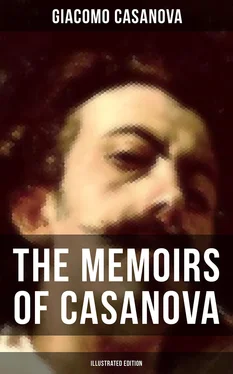
 Books
Books
